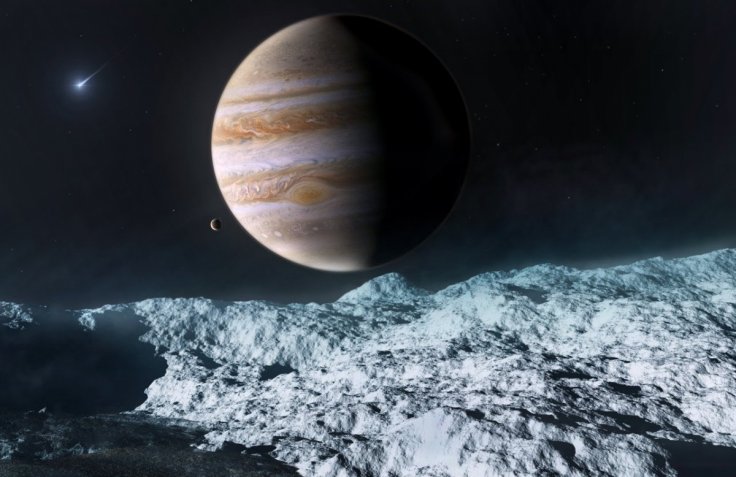
A new study report has suggested that Europa, the fourth-biggest moon orbiting gas giant Jupiter holds a salty underwater ocean beneath its icy crust. The research report also added that Europa's surface is loaded with table salt, an indication that these underground water bodies may be very similar to earth's oceans in terms of composition. The new discovery has also suggested that these oceans may also harbor the necessary ingredients to support life.
The study was conducted by researchers at the Caltech and NASA's Jet Propulsion Laboratory. During the study, they analyzed the yellow patches on Europa discovered by NASA's Voyager and Galileo probes and found that they are actually indicating the presence of sodium chloride in this watery world.
"No one has taken visible-wavelength spectra of Europa before that had this sort of spatial and spectral resolution. The Galileo spacecraft didn't have a visible spectrometer. It just had a near-infrared spectrometer, and in the near-infrared, chlorides are featureless," said Samantha Trumbo, a Caltech graduate student and the lead author of the study in a recently issued press release.
The research report is considered very crucial since it will help humans to know more about the subsurface ocean chemistry in Europa. However, the authors of the study report admitted that it is not quite sure whether the surface table salt represents the composition of the subsurface ocean.
The new report will also open the door for further investigation to unveil more secrets about the geological activities of space bodies like Europe, that are now considered potential candidates to spot alien life.
"Magnesium sulfate would simply have leached into the ocean from rocks on the ocean floor, but sodium chloride may indicate the ocean floor is hydrothermally active. That would mean Europa is a more geologically interesting planetary body than previously believed," added Samantha Trumbo.
A few months back, Elizabeth Turtle, a planetary scientist at the Johns Hopkins University Applied Physics Laboratory had revealed that Europa has lots of ingredients to host alien life. Turtle also added that the subsurface oceans in Europa are protected from radiation by the ice shell, and it makes it one of the best hubs to find alien life.
The report has been published in the journal Science Advances.









